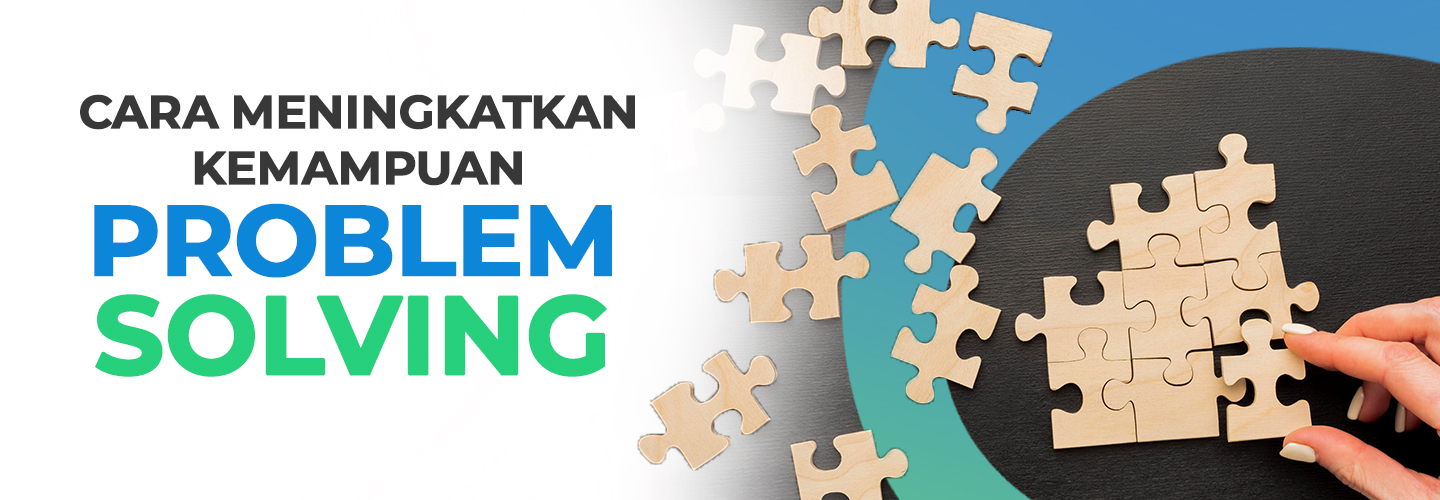Definition of Problem Solving Skill, Benefits, and How to Improve It!

Problem solving skills are the ability to identify and solve problems effectively.
If you want to improve your problem solving skills, finding out more about problem solving skills is the right step.
This article will discuss the importance of problem-solving skills in the world of work and provide practical strategies for developing them!
Definition of Problem Solving Skills
Problem solving skills are the ability to identify problems, analyze situations systematically, find effective solutions, and implement them well.
People who have this ability can usually solve problems effectively, both in work and everyday life.
For example, you are working on a project team that is experiencing major obstacles. If you have good problem solving skills, you not only find out what went wrong, but also dig deeper to find the cause.
After that, you design the right strategy to overcome the problem, and evaluate the most effective solution to implement.
Benefits of Problem Solving Skills in the World of Work
Problem solving skills are needed in the world of work because they help you overcome daily challenges more effectively.
With this ability, you can manage your time better, plan strategies, and prioritize work better.
The following are some of the benefits of problem solving skills:
1. Time efficiency
Problem solving skills help you manage your time better. With these capabilities, you can design efficient strategies to complete daily tasks.
2. Plan and Prioritize Tasks
With problem solving, you can set priorities better and plan solutions to complex situations.
This ability will help you direct your team more effectively, especially when facing urgent situations.
3. Think creatively and innovatively
Problem solving skills encourage you to think outside the box in finding solutions.
With a proactive approach, you can produce innovative solutions that inspire your colleagues to think more creatively.
4. Handle Pressure Well
Problem solving skills help you stay calm and effective when working under pressure.
This ability helps you make better decisions and provide support to coworkers when they are experiencing stress.
5. Take Risks Wisely
Problem solvers tend to take risks wisely because they believe that there are alternative solutions.
With thoughtful analysis, you can anticipate problems and develop solutions that support your goals without taking unnecessary risks.
How to Improve Problem Solving Skills
Problem solving skills are an important ability to identify problems, analyze them systematically, and find effective solutions. Here's how to improve problem solving skills:
1. Change your mindset
The first step to improving problem solving skills is adopting the right mindset.
Treat every problem as an opportunity to grow and learn, not as an obstacle. This approach will help you face challenges with a positive attitude.
The main key in this case is patience and persistence. Patience allows you to solve problems carefully, while persistence encourages you to keep trying until you find the right solution.
2. Understand the problem well
Before trying to solve a problem, it is important to understand the entire problem clearly. Start by creating a specific and precise problem statement.
This will help you focus on the core issue and avoid wasting time and resources.
Some strategies that can be used to analyze problems include:
- Asking the question "Why?" repeatedly to dig deeper.
- Collect relevant data and information.
- Involve parties affected by the problem in the analysis process.
- Compare the current problem with similar situations in the past.
- Use simulations to explore the potential outcomes of various solutions.
3. Develop Critical and Creative Thinking Abilities
Critical and creative thinking is very important in problem solving.
Critical thinking encourages you to question assumptions, recognize bias, and look for evidence to support conclusions.
Meanwhile, creative thinking allows you to see problems from various points of view, thereby generating new insights and opportunities.
4. Improve Research and Decision Making Skills
The ability to conduct research and decision making is very important in problem solving.
Good research ensures you have a comprehensive understanding of the problem and its context.
Some strategies to improve these skills include:
- Determine the research objectives clearly.
- Use various sources of information.
- Evaluate the credibility and reliability of sources.
- Involve risk assessment in the decision-making process.
- Seek input from experts, peers, and mentors.
- Reflecting on the results of decisions for future learning.
5. Improve Collaboration Skills
The ability to collaborate with other people is very important in problem solving.
Some ways to improve teamwork include:
- Create an open communication environment.
- Practice active listening skills.
- Hold regular meetings to monitor progress and discuss challenges.
- Use collaboration tools and platforms to facilitate communication.
6. Learn from Past Experiences
It is important to reflect on past problem-solving experiences, both successful and unsuccessful.
Conduct evaluation sessions with the team, SWOT analysis (Strengths, Weaknesses, Opportunities, Threats), and evaluate the results of the solutions that have been implemented.
7. Utilize Problem Solving Tools and Resources
There are various tools and resources that can help the problem solving process, such as:
- Mind mapping
- SWOT Analysis (Strengths, Weaknesses, Opportunities, Threats)
- Fishbone diagram
- Decision matrices
8. Practice Regularly
Practice is the key to improving problem solving skills. Some ways to practice include:
- Do puzzles and brain teasers regularly.
- Identify and apply problem-solving techniques to everyday challenges.
- Analyze case studies relevant to your field or industry.
- Attend workshops or training sessions on problem solving.
By consistently applying the strategies above, you can certainly improve your problem solving skills.
For those of you who want to learn more about how to make decisions, you can take part in the Systems Thinking and Complex Decision Making program.
Through this program, you will be taught to understand decision-making patterns in various situations from simple to complex.


